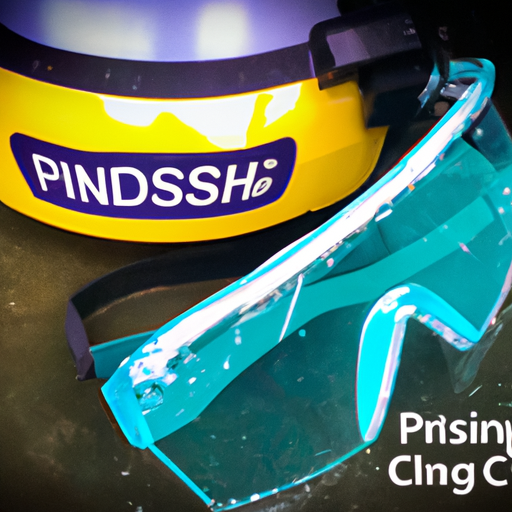Cleaning the exterior of your home or business can be a satisfying task, but it’s important to be aware of the potential risks involved with pressure washing. In this article, we will discuss the common injuries that can occur during pressure washing and provide you with valuable tips on how to prevent them. By understanding these risks and taking the necessary precautions, you can ensure a safe and successful pressure washing experience.
Common Pressure Washing Injuries
Pressure washing is a fantastic tool for cleaning various surfaces around your home or workspace. It can effortlessly remove dirt, grime, and even stubborn stains. However, it’s important to be aware of the potential dangers associated with pressure washing and take necessary precautions to prevent injuries. This article will outline common pressure washing injuries and provide tips on how to prevent them, ensuring a safe and successful cleaning experience.
Slips and Falls
Slipping and falling is one of the most common injuries associated with pressure washing. The powerful spray of water, combined with slippery surfaces, can create hazardous conditions. To prevent slips and falls, always wear non-slip footwear that provides good traction. It’s also crucial to clear the area of any obstacles or debris before starting. Additionally, using safety harnesses can provide extra stability and prevent accidental falls. Lastly, stay alert and cautious throughout the entire pressure washing process.
Eye Injuries
Another risk when pressure washing is eye injuries. The high-pressure water can forcefully propel debris, dirt, or cleaning agents towards your face, posing a threat to your eyes. To safeguard your eyes, always wear safety goggles or a face shield. These protective gears will shield your eyes from any potential hazards. If you do experience any eye injury, no matter how minor, make sure to seek immediate medical attention to prevent further complications.
Respiratory Issues
Breathing in the fine particles and chemicals present in the air while pressure washing can lead to respiratory issues. To protect your respiratory system, wear a respirator mask specifically designed for filtering out airborne particles. It’s also important to avoid spraying towards yourself and ensure adequate ventilation by working in open spaces or using a fan to circulate air. Additionally, choose detergents and chemicals that are safe for use and minimize their release into the air.
Electrocution
Electrocution is a severe hazard that can occur if proper precautions are not taken. Before starting any pressure washing task, carefully inspect and ground all electrical cords. Ensure that the cords are in good condition and not frayed or damaged. It’s also crucial to avoid any contact between water and electrical components, such as outlets or power sources. Using ground fault circuit interrupters (GFCIs) can provide an extra layer of protection by automatically shutting off the power in case of electrical faults.
Lacerations and Bruises
Working with high-pressure equipment carries the risk of lacerations and bruises if caution is not exercised. Prioritize your safety by wearing appropriate protective clothing, such as long sleeves, pants, and sturdy gloves. These will act as a barrier between your skin and any potential hazards. Avoid direct contact with rotating parts, such as the pressure washing nozzle or brushes, as they can cause injuries. Lastly, maintain a safe distance from surfaces being washed to prevent accidental contact.
Musculoskeletal Injuries
Pressure washing requires physical effort, which can strain your muscles and joints if not done correctly. To prevent musculoskeletal injuries, use equipment with ergonomic designs that reduce strain on your body. Proper lifting techniques, such as using your legs instead of your back, can prevent back injuries. Taking frequent breaks and pacing yourself throughout the task will help prevent overexertion. Before starting, warm up your body and stretch to prepare your muscles for the physical activity ahead.
Chemical Burns
Chemical burns can occur if you come into contact with corrosive or hazardous substances used in cleaning agents. To protect yourself from chemical burns, always wear gloves and full protective clothing that covers your skin. It’s important to choose cleaning agents carefully, opting for those specifically labeled for pressure washing. Avoid mixing different chemicals, as it can lead to dangerous reactions or releases of harmful fumes. Additionally, thoroughly read the safety data sheets (SDS) provided by the manufacturer to understand any potential hazards and proper handling procedures.
Hearing Loss
Pressure washers produce loud noise levels that can lead to hearing loss over time. To protect your hearing, always wear hearing protection, such as earplugs or earmuffs, while operating a pressure washer. Avoid prolonged exposure to high noise levels by taking breaks or stepping away from the noise source when possible. Prioritizing your hearing health will ensure you can enjoy the benefits of pressure washing without experiencing any long-term auditory damage.
Heat Stress
Engaging in outdoor pressure washing activities during hot weather can put you at risk of heat stress. To prevent heat-related illnesses, stay hydrated by drinking plenty of water before, during, and after the job. Take regular breaks in shaded areas or indoors to cool down and rest. Wearing lightweight and breathable clothing will also help regulate your body temperature. It’s important to listen to your body and recognize signs of heat exhaustion or heat stroke, such as dizziness, fatigue, or nausea. If you experience these symptoms, immediately seek a cooler environment and hydrate.
Infections
Pressure washing can sometimes expose you to bacteria, molds, or other microbes that may be present on the surfaces being cleaned. To prevent infections, always wear gloves and full protective clothing to minimize direct contact with contaminated surfaces. After completing the pressure washing task, properly clean and disinfect all equipment to eliminate any potential pathogens. If you have any open wounds or cuts, make sure to seek medical attention promptly to prevent infection.
By following these preventive measures, you can enjoy the benefits of pressure washing while minimizing the risk of injuries. Prioritize safety and take the necessary precautions to protect yourself from common pressure washing injuries. Happy and safe cleaning!
